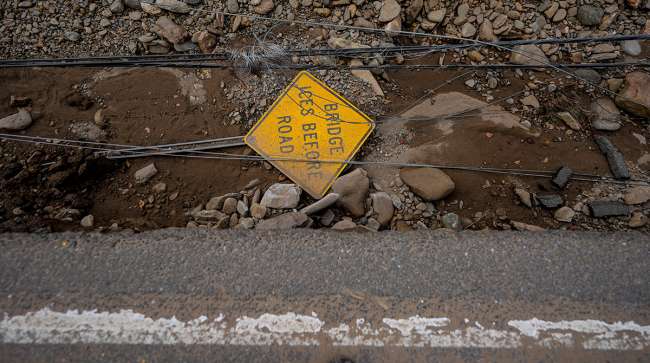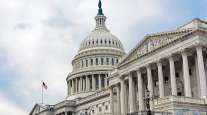Senior Reporter
White House Seeks $8 Billion in Transportation Aid

[Stay on top of transportation news: Get TTNews in your inbox.]
WASHINGTON — President Joe Biden and senior administration officials recently called on Congress to approve emergency aid before the end of the year to rebuild transportation corridors and provide assistance to areas hard-hit by natural disasters.
The president is requesting about $8 billion to fix or upgrade connectivity networks recently destroyed by severe weather events. The funds also would assist with rebuilding Baltimore’s Francis Scott Key Bridge. The bridge collapsed in March after being struck by a cargo ship.
Overall, the Biden White House is asking Congress to approve nearly $100 billion in emergency funds to boost operations at the Federal Emergency Management Agency and other departments. “It is our sworn duty now to deliver the necessary resources to ensure that everyone in communities reeling from Hurricanes Helene and Milton — and those still recovering from previous disasters — have the federal resources they need and deserve,” Biden wrote House Speaker Mike Johnson (R-La.) on Nov. 18.
Biden cited rebuilding homes, reopening schools and roads, supporting farmers and ensuring access to health care in making his case for the funds. “There can be no delay,” he wrote. “I urge the Congress to act quickly to pass a supplemental funding package to assist communities.”
Two days later, Transportation Secretary Pete Buttigieg defended the president’s supplemental funding request during a Senate Appropriations Committee hearing. As he put it, “With each passing day, we’re growing closer to a situation where this department will not be able to provide even partial funding to eligible projects in the future.”
“Consider communities in Arkansas, California and Oklahoma that have been impacted by floods, tornadoes and wildfires, or the Francis Scott Key Bridge in Maryland, or the Teton Pass in Wyoming. We currently lack the funds to permanently rebuild the infrastructure in these communities and many others across the country, even though they are eligible,” Buttigieg said Nov. 20.
FEMA Administrator Deanne Criswell joined the secretary at the Senate hearing. “Communities affected by Hurricanes Helene and Milton require FEMA’s ongoing, uninterrupted support during their recovery phase. As charged by law, FEMA is committed to standing by these communities as well as those impacted by other disasters throughout their recovery process,” she explained, adding, “In meeting that charge, however, FEMA is once again rapidly exhausting the [disaster relief fund].”
This Senate is working to deliver @POTUS's disaster aid plan that would replenish:
—@FEMA programs
—@SBAgov's disaster loan program
—@USDOT funding to repair & reconstruct our roads
—And other critical disaster relief
We'll keep working to get Americans the assistance they need — Chuck Schumer (@SenSchumer) November 21, 2024
In this post-election lame duck legislative session, neither the House nor the Senate has scheduled floor consideration of a supplemental funding package reflecting these White House priorities.
However, finalizing annual federal funding measures remains a priority for congressional leaders. Both Johnson and Senate Majority Leader Chuck Schumer (D-N.Y.) affirmed they intend to avert a partial government shutdown. Funding authority for most of the federal government expires Dec. 20.
“Government funding is scheduled to run out on December the 20th. Both sides must work together to prevent a shutdown before then. Nobody wants to hear the words ‘Christmas-time shutdown’ a few weeks from now. I can’t think of something the American people would want less during the holidays,” Schumer said this month. “Just as we’ve done repeatedly over the past couple of years, both sides must compromise and work together to make sure the government remains funded.”
Want more news? Listen to today's daily briefing above or go here for more info
Earlier this year, the Senate Appropriations Committee backed a transportation bill that would provide $964.5 million in the next fiscal year for the Federal Motor Carrier Safety Administration. The bill also would provide the Federal Highway Administration $63.1 billion, the Federal Aviation Administration $22 billion, the Federal Transit Administration $17 billion, Federal Railroad Administration $3.4 billion and the National Highway Traffic Safety Administration $1.2 billion.
A House committee-passed version would provide FMCSA $909 million. The House bill would dedicate $200 million for parking expansion projects nationwide for the women and men who operate commercial vehicles.




